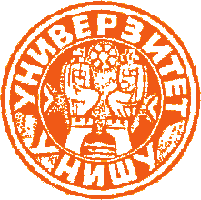Orthodox Christianity and the Development of the Serbs in the Eighteenth Century
Orthodox Christianity and the Development of the Serbs in the Eighteenth Century
Author(s): Bogdan ĐurovićSubject(s): History
Published by: Универзитет у Нишу
Summary/Abstract: The Orthodox religion, coupled with the Kosovo mythology, directly participated in creating social mentality among the Serbs, while offering, as a model of the "inner-world" asceticism, a heroic death for national causes ("for the noble cross and golden freedom") or stoic endurance of the humiliation in slavery (modeled after the Christian martyrs). The view of the future that would be deprived of suffering and humiliation assumed as its eschatological objective the "heavenly kingdom" for the former generations and the "new Serbian empire" for the future ones. Such a model of the "inner-world" asceticism, in its turn, contributed to "forsaking the world", that is, to a passive attitude toward everyday engagement in the work that would be founded upon strictly organized and rational principles. The assumption that the Orthodox Christianity, as an identifier, participated in preserving the national identity of the Serbs is correct, but it should not be ignored that there were other factors at work as well - especially the mythology that gathered around the "myth of Kosovo". Still, in the recent history of the New Age (18th-19th centuries), when the Serbs started their liberation process trying to re-connect themselves with the European civilization the Orthodox religion not only failed to contribute to the modernization processes but it was most often in conflict with them.
Journal: FACTA UNIVERSITATIS - Philosophy, Sociology, Psychology and History
- Issue Year: 1999
- Issue No: 06
- Page Range: 239-246
- Page Count: 8
- Language: English

